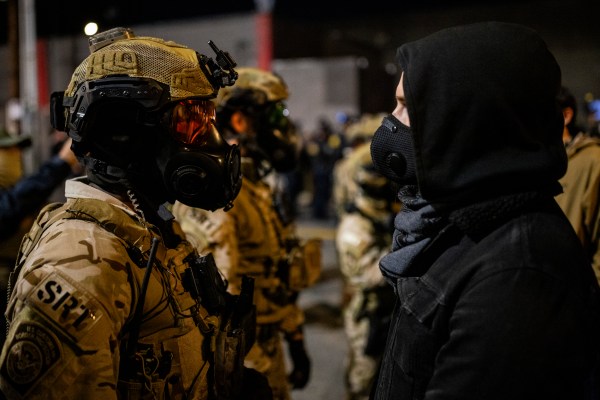Turkish President Recep Tayyip Erdoğan has continued to hold Finland and Sweden’s potential membership in NATO hostage to his stated demands. He wants concessions from the two aspirants on issues connected to Kurdish terrorism and has an unstated agenda of distracting Turks from his catastrophic economic mismanagement, pleasing his Russian “competimate” Vladimir Putin, and making himself the center of attention at the forthcoming Madrid Summit of the North Atlantic alliance later this month, as well as greasing the skids for the potential sale of advanced U.S. F-16 aircraft to Turkey.
In the wake of Russia’s aggression in Ukraine, moving swiftly to incorporate Finland and Sweden into NATO is imperative for the geopolitical and military benefits it brings to European security. It is almost certain that a reluctant President Joe Biden will have to get involved, and it is equally likely that, at the end of the day, Erdoğan’s objections will be assuaged and the NATO enlargement process will move forward. But the damage that Erdoğan has done to Turkey’s standing in Europe and its long-term geopolitical interests (as opposed to his short-term domestic political interests) will be profound.
The damage is thrown into sharp relief by a recent domestic political crisis in Sweden and an extraordinary interview granted by Finland’s President Sauli Niinistö, one of Europe’s few statesmen of any vision or stature. The combination of the two demonstrate both the bad faith of Erdoğan, the unintended consequences of his recent hostage-taking diplomacy, and the potentially long-lasting aftereffects of the Turkish strongman’s strong arm diplomatic tactics.
Sweden’s path to NATO candidacy was not as direct as Finland’s, where the debate on NATO membership had been much more advanced for years. Moreover, the political situation in Sweden was more fraught since the Social Democratic government had a very narrow margin in the parliament, the country is facing elections in the fall, and the broad political consensus that existed in Finland was not in place—in fact the governing Social Democratic Party was divided over NATO membership. The Finns coordinated very carefully with the Swedes after the Russian invasion of Ukraine on February 24, mindful that while public opinion had rapidly and radically transformed in Finland, the change in Sweden, also profound, was not on the same order of magnitude.
The recent Swedish government crisis had almost nothing to do with Turkey’s demands on NATO accession, but rather originated in efforts by opposition parties to force a vote of no-confidence on the minister of justice and interior because of rising gang violence in Sweden. The no-confidence motion fell one vote short and that vote was Left Party member Amineh Kakabaveh, a Swede of Kurdish origin, whose support keeps the Social Democratic government in office. The price she has extracted for her vote in this instance, however, was a commitment that the Swedish government would not cave in to Erdoğan’s demands that Stockholm turn over various Kurds that Turkey has accused of terrorism. Some observers are already suggesting that this episode comes close to “derailing” Finland and Sweden’s applications for the moment. Although that judgment seems premature, the entire episode demonstrates that Erdoğan’s extortionate diplomacy could lead him to miscalculate in ways that lead to a train wreck at the NATO summit.
Which brings us to President Niinistö’s interview in Ilta-Sanomat. Niinistö walks through in detail the extensive consultations undertaken by the always careful and thorough Finns as well as the more tentative Swedes before announcing their application for NATO membership. He specifies that the contacts went beyond the April 4 phone call between Niinistö and Erdoğan that had previously been reported and included exchanges between the foreign ministers and at lower levels of the ministries as well. The assurances of Turkish support for a Nordic round of enlargement were repeated in Brussels to NATO Secretary General Jens Stoltenberg. Niinistö made clear that although Finland is willing to address Turkish concerns about terrorism (and indeed pointed to the fact that Finnish anti-terrorism legislation is consistent with European standards) and even the arms embargo (although not as a “condition” for membership), extradition of individuals will have to be dealt with through normal legal channels (the same position that the U.S. has taken with regard to Turkish demands for the extradition of cleric Fetullah Gulen for allegedly plotting the July 2016 coup attempt in Turkey). Despite his typically laconic manner of expression, Niinistö’s anger at Turkish duplicity drips through the interview noting that had the Turks indicated they would raise an objection, Finland and Sweden wouldn’t have applied since being in a security limbo is the worst possible position for them.
The irony in all of this is that Finland and Sweden have been for the past 25 years among Turkey’s strongest advocates and supporters in Europe. In the late 1990s President William Jefferson Clinton nominated me to serve as the U.S. ambassador to the Republic of Finland. When I arrived in the summer of 1998 I found my Finnish diplomatic colleagues at the Foreign Ministry and in the office of the president and prime minister (who both have responsibilities for the conduct of Finland’s foreign relations) hard at work preparing to assume the rotating presidency of the European Union which they had only recently joined in 1995 The extremely thorough, hardworking, and talented Finnish diplomatic leaders had concluded from their studies of past EU presidencies that an unexpected issue would always crop up during the presidency and dominate it. Although they recognized that it was impossible to predict just what that issue might be, they decided that the possibility of renewed crisis or negotiations over Cyprus might be such an issue and set to work preparing themselves to handle it if it emerged as an issue during their presidency. This entailed lots of diplomatic contact with Greece and Turkey, needless to say.
As the Finns settled into their first EU presidency, however, what greeted them was not geopolitical tremors but real, no-shit earthquakes of significant magnitude in first Turkey and then Greece in the late summer of 1999. The geological phenomena led in short order to massive efforts at humanitarian relief in the Eastern Mediterranean that brought, in its wake, a rapid and unexpected improvement in the Greek-Turkish relationship. The Finns’ hard work and anticipatory diplomacy put them in an excellent position to capitalize on this. Although there was no Cyprus crisis for them to resolve, they suddenly found themselves in a position to put the question of Turkish accession to the European Union on the agenda at the December 1999 Helsinki EU Summit.
EU membership had been a longstanding goal of Turkish statecraft dating back to the initial application by Turkey in 1959 for associate membership in what was then called the European Economic Community. Anchoring Turkey in the economic structures of Europe to complement its important role as a NATO ally had also been a key bipartisan objective of U.S. European policy through the administrations of nine different U.S. presidents, from Eisenhower to Clinton. Hence, I was actively involved, as U.S. ambassador, on the margins of the EU Summit that December in helping the Finns work out a formula acceptable to the Turks. Despite intensive efforts with my then colleagues in Ankara, Ambassador Mark Parris and his deputy, Jim Jeffrey, it ultimately took a phone call from Air Force One by President Clinton to the then-Turkish Prime Minister Bulent Ecevit to get the Turks to take yes for an answer to something that they had been seeking for 40 years—the prospect of opening accession talks to join Europe. Finland’s early preparation and assiduous efforts paid off and Turkey’s potential candidacy was now clearly on the EU agenda.
Five years later I found myself in Ankara as George W. Bush’s ambassador to the Republic of Turkey when the EU faced the decision of whether to actually open accession talks with Turkey on all of the chapters of the Acquis Communitaire—the steps that Turkey would need to take to adapt its economic, social and political institutions to enable it to actually undertake the responsibilities of membership in the EU.
The Finns had remained strong supporters of Turkish candidacy. Former Finnish President and Nobel Peace Prize winner Marti Ahtisaari became chairman of an independent commission on Turkey (supported by funding from George Soros’ Open Society Foundation) that lobbied for Turkey’s candidacy before the December 2004 Brussels EU Summit. Sweden also had emerged as a key supporter. My Swedish counterpart in Ankara, Ann Dismorr, was a particularly active advocate and sympathetically described Turkey’s reform efforts in her 2005 book Turkey Decoded. Working with her, British Ambassador Peter Westmacott (later Her Majesty’s Ambassador to France and the U.S.) as well as other American colleagues, we pushed for the EU to open the process to Turkey. At the end the invitation was offered—albeit with some caveats that were hard for Turkey to swallow. Once again Western leaders—in this case, Tony Blair, Gerhard Schröder and Jacques Chirac—had to cajole Erdoğan for hours into taking yes for an answer. It should have been a moment of triumph for Turkey, but Erdoğan’s reaction betrayed at best ambivalent feelings about the prospect of firmly grounding Turkey in European institutions.
In short order, European leaders like Nicolas Sarkozy and Angela Merkel emerged who were much less sympathetic to Turkey, and Turks have long since written off the EU accession process as Erdoğan’s increasing authoritarianism has taken Turkey farther and farther away from European standards of democracy and rule of law. But even without an active EU accession process, alienating traditional supporters in Europe is foolish and short-sighted by any standard. The anger and hostility this has engendered in Northern Europe (and not just in Sweden and Finland) is palpable and will not be forgotten for a long time. Moreover, Erdogan’s insistence on using the Nordic candidacies for bargaining purposes will reinforce every existing bad stereotype that regards Turks not as Europeans but as Middle Easterners more interested in haggling in the souk than in policy outcomes. It is a high bill to pay for the autocrat’s several minutes in the sun at Madrid and his pathetic efforts to demonstrate his relevance and importance to Turkish voters in the run-up to elections in 2023 at the expense of Europe’s larger security needs as it faces the biggest war on the continent since 1945.






Please note that we at The Dispatch hold ourselves, our work, and our commenters to a higher standard than other places on the internet. We welcome comments that foster genuine debate or discussion—including comments critical of us or our work—but responses that include ad hominem attacks on fellow Dispatch members or are intended to stoke fear and anger may be moderated.
With your membership, you only have the ability to comment on The Morning Dispatch articles. Consider upgrading to join the conversation everywhere.